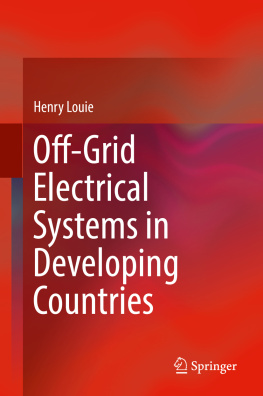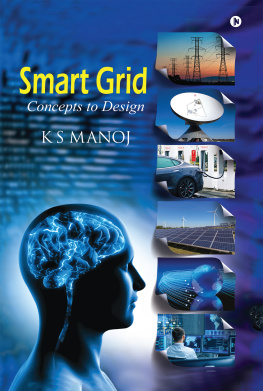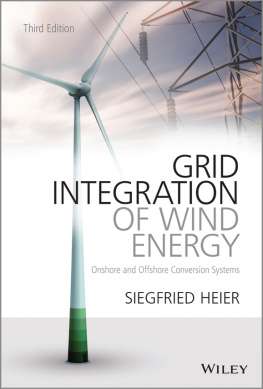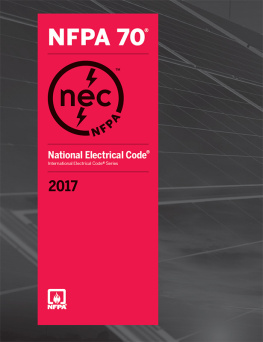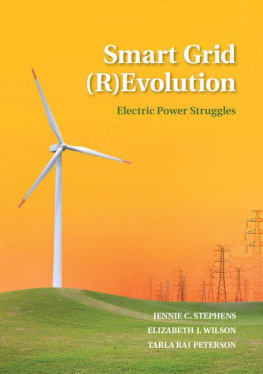Henry Louie - Off-Grid Electrical Systems in Developing Countries
Here you can read online Henry Louie - Off-Grid Electrical Systems in Developing Countries full text of the book (entire story) in english for free. Download pdf and epub, get meaning, cover and reviews about this ebook. year: 0, publisher: Springer International Publishing, genre: Romance novel. Description of the work, (preface) as well as reviews are available. Best literature library LitArk.com created for fans of good reading and offers a wide selection of genres:
Romance novel
Science fiction
Adventure
Detective
Science
History
Home and family
Prose
Art
Politics
Computer
Non-fiction
Religion
Business
Children
Humor
Choose a favorite category and find really read worthwhile books. Enjoy immersion in the world of imagination, feel the emotions of the characters or learn something new for yourself, make an fascinating discovery.
- Book:Off-Grid Electrical Systems in Developing Countries
- Author:
- Publisher:Springer International Publishing
- Genre:
- Year:0
- Rating:3 / 5
- Favourites:Add to favourites
- Your mark:
- 60
- 1
- 2
- 3
- 4
- 5
Off-Grid Electrical Systems in Developing Countries: summary, description and annotation
We offer to read an annotation, description, summary or preface (depends on what the author of the book "Off-Grid Electrical Systems in Developing Countries" wrote himself). If you haven't found the necessary information about the book — write in the comments, we will try to find it.
Henry Louie: author's other books
Who wrote Off-Grid Electrical Systems in Developing Countries? Find out the surname, the name of the author of the book and a list of all author's works by series.
Off-Grid Electrical Systems in Developing Countries — read online for free the complete book (whole text) full work
Below is the text of the book, divided by pages. System saving the place of the last page read, allows you to conveniently read the book "Off-Grid Electrical Systems in Developing Countries" online for free, without having to search again every time where you left off. Put a bookmark, and you can go to the page where you finished reading at any time.
Font size:
Interval:
Bookmark:
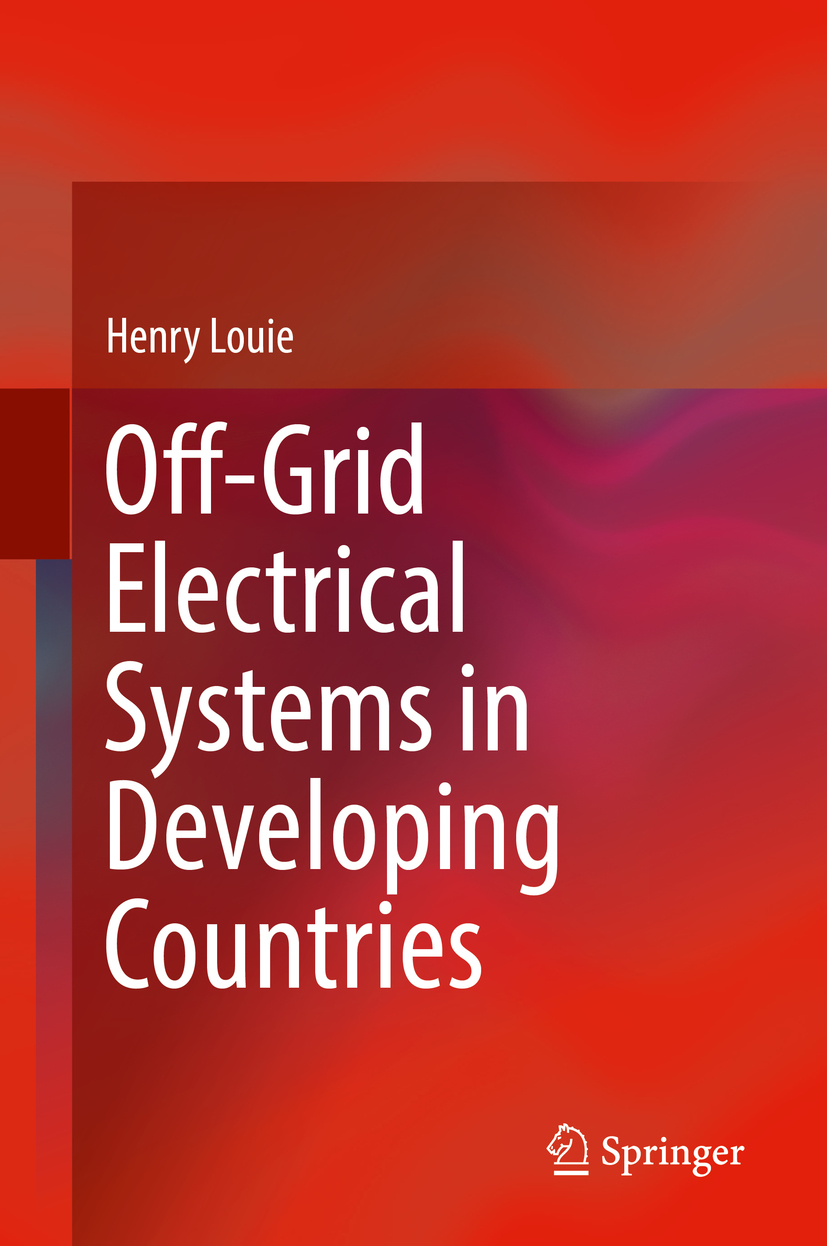

This Springer imprint is published by the registered company Springer International Publishing AG part of Springer Nature.
The registered company address is: Gewerbestrasse 11, 6330 Cham, Switzerland
To Kristine
Over one billion people do not have access to electricity. The majority live in developing countries in Sub-Saharan Africa and South Asia. The consequences of this form of energy poverty can be severe. Most activities end at sunset, unless dangerous and expensive kerosene lamps or candles are used. Children breathe air polluted by smoke from open fires. Women give birth in darkness or without the aid of life-saving electronic medical devices. Rural communities become even more isolated without access to news and information by radio or television.
Now, perhaps more than ever, electricity access has caught the attention of the global community. Access to affordable and sustainable energy is one of the United Nations Sustainable Development Goals. Large philanthropic and development organizations are prioritizing electricity access. Even multi-billion-dollar technology companies have started electricity access initiatives.
An estimated US$50 billion per year is needed through 2030 to achieve universal electricity access. It is estimated that over 100,000 mini-grids will be needed, and that one in three households presently without electricity access will have an off-grid system of some form. This will not happen without a workforce of engineers well prepared to innovate and design systems in the unique context of off-grid communities in developing countries.
The purpose of this book is to provide engineers with the essential foundational knowledge of designing and operating off-grid electricity systems in developing countries. This is a first-of-its-kind book that brings together the electrical engineering concepts relevant to off-grid systems. The scope is broad. Throughout the book, examples, design approaches, and practical considerations especially relevant to off-grid systems in developing countries are provided.
The book focuses on electrical aspects of off-grid systems. It assumes the reader has basic proficiency in DC and AC circuit analysis, including phasor and stead-state power analysis. Previous exposure to balanced three-phase circuit analysis is helpful, but not required. Wherever possible, the single-phase (per-phase) model is used. It is appropriate for third or fourth year undergraduate students, or first year graduate students. Although aspects of renewable energy engineering and power electronics are covered, it does not replace a course or book dedicated to these topics. Practitioners may find the book as a useful reference.
The book is arranged in four parts. The first part, Chaps. introduces off-grid systems.
The second part of this book, Chaps. , is focused on the energy conversion technologies used in off-grid systems. Readers with a background in renewable energy and electromechanical energy conversion may find some of this material familiar. However, the information is presented considering small-scale off-grid applications, which most readers will find fresh.
The third part of this book, Chaps. discusses converters. Readers with a background in power electronics will find some concepts familiar.
The fourth and final part of the book ties the concepts presented in the previous chapters. In Chap. is focused on solar home systems and solar lanterns. The book concludes with a short chapter on practical considerations.
In writing this book, I drew heavily upon my experience in off-grid electrical systems. My work with the nonprofit organization KiloWatts for Humanity, IEEE Smart Village, and time living in Zambia as a Fulbright Scholar is especially formative. Most of the text is oriented toward electricity access in the Sub-Saharan African experience.
It is with some hesitation that the title of this book includes the term developing country. To some, this is a degrading term. Of course, it is not intended to be interpreted in this way. Rather, the term is used to connote the general circumstances that the off-grid systems discussed in this book exist: in at-risk, underserved, and/or impoverished communities. These conditions also exist in countries not classically considered developing.
I am especially grateful to the many reviewers, organizations, and individuals whose insight and feedback helped shape this book. In particular, Dr. Paul Neudorfer and Dr. Eric Watson, S.J. of Seattle University; Steve Szablya, P.E., and Daniel Nausner of KiloWatts for Humanity; Peter Dauenhauer from the University of Strathclyde; Dr. Pritpal Singh of Villanova University; Brett Bauer of Canyon Industries; Frank Bergh, P.E. of Sigora Haiti; Ifeanyi Orajaka of GVE Projects; and Isaiah Lyons-Galante and Sam Slaughter of Power Gen.
I am thankful for the willingness of so many individuals and organizations for allowing their images to be used in this book: Canyon Industries, BBOXX, d.light, Energy Sector Management Assistance Program, HOMER Energy, Itek Energy, KTH University, Ella Louie, Eli Patten, Outback Power, PowerGen, Robert Ngoma, and World Bank Group. Several Seattle University students assisted in proofreading and developing figures: Yahya Alyami, Greg Hirose, and Mahekdeep Singh.
This book was made possible by the resources provided by Fr. Francis Wood Chair at Seattle University.
Lastly, I am immeasurably grateful for the early mentorship and inspiration from Dr. Bert Otten, S.J., of the Chikuni mission in Zambia.
All aluminum alloy conductor
Font size:
Interval:
Bookmark:
Similar books «Off-Grid Electrical Systems in Developing Countries»
Look at similar books to Off-Grid Electrical Systems in Developing Countries. We have selected literature similar in name and meaning in the hope of providing readers with more options to find new, interesting, not yet read works.
Discussion, reviews of the book Off-Grid Electrical Systems in Developing Countries and just readers' own opinions. Leave your comments, write what you think about the work, its meaning or the main characters. Specify what exactly you liked and what you didn't like, and why you think so.

